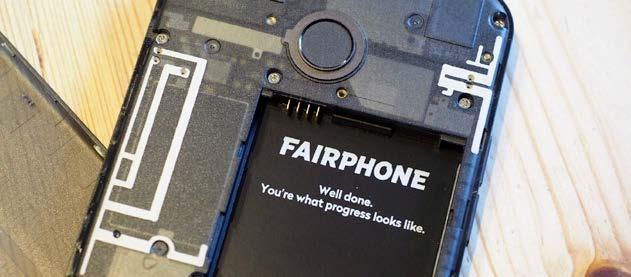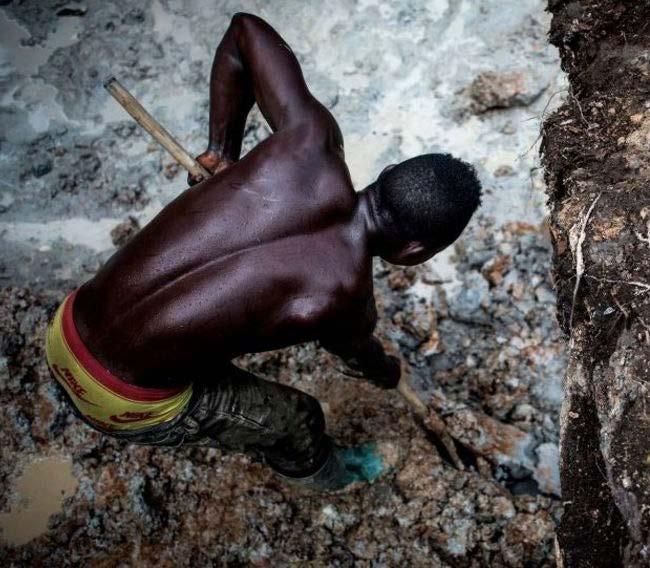
3 minute read
Improving Conditions of Informal Cobolt Mines Will Create Opportunities for local communities
EQUIPMENT
Improving Conditions of Informal Cobolt Mines Will Create Opportunities for local communities
In nations like the Autonomous Republic of Congo (DRC), which supplies much of the globe’s supply of cobalt, there’s a huge, informal mining market that’s likewise very harmful, with couple of security preventative measures and a great deal of child labor.

Called artisanal as well as small-scale mining (ASM), it attracts lots of desperately inadequate individuals that occupy extra land and also remove minerals from mining parcels given to industrial companies by the Congolese government. Some 90% of all cobalt miners in the DRC operate in artisanal mining as well as, in 2018 their labor offered as high as 20% of supply in the nation.
mobile phones, together with a long checklist of companions, simply announced the Fair Cobalt Partnership, which aims to boost problems in cobalt mines as well as communities in the DRC as well as build a source of responsible cobalt in battery production. (Fairphone was likewise the source for all those data above).
In addition, last month, social business accelerator Miller Center for Social Entrepreneurship, which is based at Santa Clara College, as well as DRC-based Centre Arrupe Pour La Recherche et La Formation (CARF) released the Mining Alternatives Project, a record concerning artisanal mining and means to train local neighborhoods in alternate incomes.
The FCA’s property is that, while the issues of dangerous mining conditions and prevalent kid labor have actually been widespread enough in recent times, they’re only going to get worse. That’s because, as international power progressively moves to battery-led modern technology, the demand for cobalt will undoubtedly mushroom. To offer more material, there’s a good chance the casual mining sector will certainly fill up the void.
The FCA’s goals consist of professionalizing ASM mining monitoring, to make it safer as well as extra eco responsible. “There’s an acknowledgment that these artisanal and small-scale mines aren’t vanishing, so allow’s collaborate to professionalize them,” says Pamela Roussos, Miller Facility’s primary innovation policeman.
Various other goals: working with ASM operators to maintain youngsters out of mines and sustain their registration in college as well as investing in area programs developed to create lasting source of incomes besides mining. Other participants includes Signify, Huayou Cobalt and The Influence Facility, along with Glencore, the Liable Cobalt Effort (RCI), Sono Motors and Lifesaver.
VOCATIONAL TRAINING CENTERS
Miller Center’s research study discovered a widespread regional interest in professional abilities growth in areas like agriculture and fish farming. It additionally took a look at methods to allow kids participate in college, while also assisting to give much-needed revenue for their families. Additionally, due to the fact that many adults do not have the abilities required to be hired by massive mines with much safer working problems, the record suggested providing the proper training.
To that end, Miller Center plans to produce vocational training centers, which will certainly show every little thing from agricultural techniques to economic literacy and also welding abilities. Once it establishes the very first center, it prepares to duplicate the design in other areas. “We never assume little,” claims Roussos.
A LOT MORE CONCERNING FAIRPHONE
Fairphone began in 2010 as a recognition campaign about problem minerals, such as coltan, tin, gold and also tungsten, that financing dispute in the DRC and also adjoining nations. Four years later, the owners created a business targeted at selling a phone that reduces waste and also utilizes a deducible supply chain using eco and also socially mindful methods.
Thus, the phone has a modular design so it can be quickly fixed, consequently cutting down on waste; there additionally are regular, continual software program updates. Additionally, in creating countries with little reusing infrastructure, the business removes waste, taking it to centers in Europe.
When it comes to the supply chain, Fairphone not just uses vendors in conflict-free locations, yet also resources products from dispute areas, seeing to it providers aren’t adding to the hostilities. The phones now utilize conflict-free tin and also tantalum from the DRC, conflict-free tungsten from Rwanda as well as Fairtrade gold from Peru.










